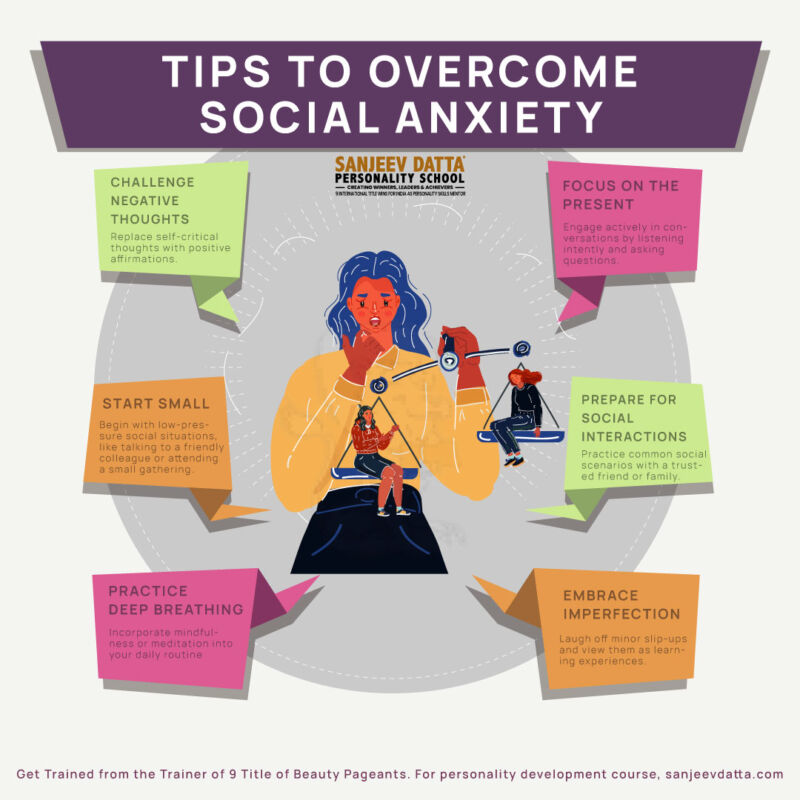Stage fear, or glossophobia, is one of the most common fears experienced by people across the world. Whether you’re presenting a business pitch, delivering a speech, or performing on stage, the thought of being in the spotlight can be overwhelming. But what if stage fear could become your greatest strength? With the right strategies, mindset, and preparation, it’s possible to conquer this challenge. This guide will show you exactly how to overcome stage fear and transform your anxiety into confidence. By the end of this article, you’ll not only understand why stage fear occurs but also learn practical techniques to handle it. Let’s dive into the journey of overcoming stage fear and unleashing your potential to command the stage with poise and assurance.
Understanding Stage Fear
Before we address how to overcome stage fear, it’s essential to understand what causes it. Stage fear stems from a combination of physiological, psychological, and emotional factors:
- Fear of Judgment: The thought of being judged or criticized by others can create anxiety.
- Lack of Confidence: Self-doubt about your abilities can lead to nervousness.
- Physical Reactions: Sweaty palms, a racing heart, and trembling hands are natural responses to anxiety.
- High Expectations: Pressure to perform perfectly can heighten fear.
Recognizing these triggers is the first step toward addressing stage fear. Once you identify the root cause, you can begin to implement effective solutions.
Strategies to Overcome Stage Fear

- Prepare Thoroughly
Preparation is the cornerstone of confidence. The more familiar you are with your material, the less room there is for fear to creep in. Here’s how to prepare effectively:
- Know Your Content: Research your topic thoroughly and practice your presentation multiple times.
- Rehearse with Feedback: Practice in front of friends or family who can provide constructive feedback.
- Simulate the Environment: Practice in a setting similar to the stage to acclimate yourself.
Visit: how to deal with criticism
- Visualize Success
Visualization is a powerful tool to reduce anxiety and build confidence:
- Picture a Positive Outcome: Imagine yourself speaking confidently and receiving applause.
- Focus on Strengths: Reflect on your skills and past successes to boost self-belief.
- Incorporate Relaxation Techniques: Deep breathing and meditation can help calm your nerves.

- Master Your Body Language
Non-verbal communication is as important as the words you speak. Command the stage with these tips:
- Maintain Eye Contact: Engage with your audience by looking at different sections of the room.
- Stand Tall: Good posture exudes confidence.
- Use Gestures: Appropriate hand movements can enhance your message. Command attention, exude confidence, and achieve greatness—our personality grooming classes make it possible!

- Tackle Negative Thoughts
Your mindset plays a crucial role in overcoming stage fear. Replace negative thoughts with positive affirmations:
- Shift Your Perspective: View the stage as an opportunity rather than a threat.
- Adopt a Growth Mindset: Treat mistakes as learning experiences.
- Practice Gratitude: Be thankful for the chance to share your ideas.
Visit: tips for clear and confident expression
- Engage with Your Audience
Building a connection with your audience can ease nervousness:
- Start with a Story: Anecdotes make your presentation relatable and engaging.
- Ask Questions: Involving the audience creates interaction and reduces focus on yourself.
- Gauge Reactions: Adjust your tone and delivery based on audience feedback.
- Develop a Routine
Having a pre-stage ritual can help calm your nerves:
- Warm-Up Exercises: Vocal exercises and stretching can release tension.
- Positive Self-Talk: Remind yourself of your capabilities and strengths.
- Deep Breathing: Inhale deeply and exhale slowly to steady your nerves.
- Start Small
If the thought of a large audience is daunting, begin with smaller groups:
- Practice in Safe Spaces: Start with presentations to friends or in small meetings.
- Join Clubs: Groups like Toastmasters provide supportive environments for public speaking.
- Build Gradually: Progress to larger audiences as your confidence grows. Turn shyness into strength—our personality development course is designed for YOU.

- Seek Professional Help
If stage fear persists, consider seeking guidance:
- Public Speaking Courses: Enroll in workshops to refine your skills.
- Therapists or Coaches: Professionals can help address underlying anxieties.
- Join Support Groups: Connecting with others facing similar fears can be motivating.
The Role of Practice in Overcoming Stage Fear
Consistency is key to conquering stage fear. Regular practice allows you to:
- Identify Weak Spots: Refine areas that need improvement.
- Build Muscle Memory: Repeated practice reduces the need to consciously think about your performance.
- Gain Confidence: The more you practice, the more confident you become.
Visit: how to improve speaking skills
Conclusion
Stage fear may feel like an insurmountable challenge, but it is possible to overcome it with the right strategies and mindset. You can transform fear into confidence by preparing thoroughly, visualizing success, mastering body language, and practicing regularly. Remember, every great speaker started somewhere, and your journey to learning how to overcome stage fear begins now.
As you step onto the stage, take a deep breath and remind yourself of your capabilities. With each performance, you’ll grow stronger, more confident, and ready to inspire your audience. The stage is yours to conquer—embrace it and let your voice be heard.


